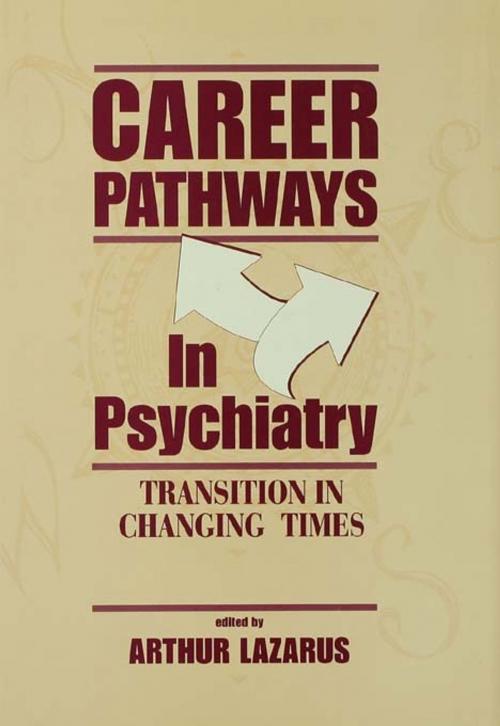Career Pathways in Psychiatry
Transition in Changing Times
Nonfiction, Health & Well Being, Psychology, Reference, Mental Health| Author: | ISBN: | 9781134893416 | |
| Publisher: | Taylor and Francis | Publication: | June 17, 2013 |
| Imprint: | Routledge | Language: | English |
| Author: | |
| ISBN: | 9781134893416 |
| Publisher: | Taylor and Francis |
| Publication: | June 17, 2013 |
| Imprint: | Routledge |
| Language: | English |
Career transitions in psychiatry have rarely been discussed openly. Yet, in the light of health care reform and other forces affecting clinical practice, it is more important than ever that psychiatrists have information about the career options within their specialty. Career Pathways in Psychiatry: Transition in Changing Times serves that purpose. It explores the professional development and career choices of prominent American psychiatrists, each of whom is identified with a particular career track and many of whom have themselves experienced one or more career transitions.
The autobiographical accounts of the contributors survey a wide range of career pathways in psychiatry, including clinical practice, HMO practice, research, administration, entrepreneurism, psychoanalysis, organized medicine, the pharmaceutical industry, public psychiatry, occupational psychiatry, forensic psychiatry, and military psychiatry. These accounts are as engaging as they are informative; their anecdotal nature and conversational tone make for pleasurable reading. References at the end of each chapter serve as recommended reading for those who wish to learn more about specific career options.
Intended for psychiatric residents and psychiatrists early in their careers, Career Pathways in Psychiatry will also appeal to their more experienced colleagues, including seasoned clinicians who have contemplated career changes. With a preface summarizing research on career transitions in medicine and numerous chapters shedding light on factors contributing to resistance to change, this book will also be of interest to social scientists, mental health administrators, and professional recruiters.
Career transitions in psychiatry have rarely been discussed openly. Yet, in the light of health care reform and other forces affecting clinical practice, it is more important than ever that psychiatrists have information about the career options within their specialty. Career Pathways in Psychiatry: Transition in Changing Times serves that purpose. It explores the professional development and career choices of prominent American psychiatrists, each of whom is identified with a particular career track and many of whom have themselves experienced one or more career transitions.
The autobiographical accounts of the contributors survey a wide range of career pathways in psychiatry, including clinical practice, HMO practice, research, administration, entrepreneurism, psychoanalysis, organized medicine, the pharmaceutical industry, public psychiatry, occupational psychiatry, forensic psychiatry, and military psychiatry. These accounts are as engaging as they are informative; their anecdotal nature and conversational tone make for pleasurable reading. References at the end of each chapter serve as recommended reading for those who wish to learn more about specific career options.
Intended for psychiatric residents and psychiatrists early in their careers, Career Pathways in Psychiatry will also appeal to their more experienced colleagues, including seasoned clinicians who have contemplated career changes. With a preface summarizing research on career transitions in medicine and numerous chapters shedding light on factors contributing to resistance to change, this book will also be of interest to social scientists, mental health administrators, and professional recruiters.















